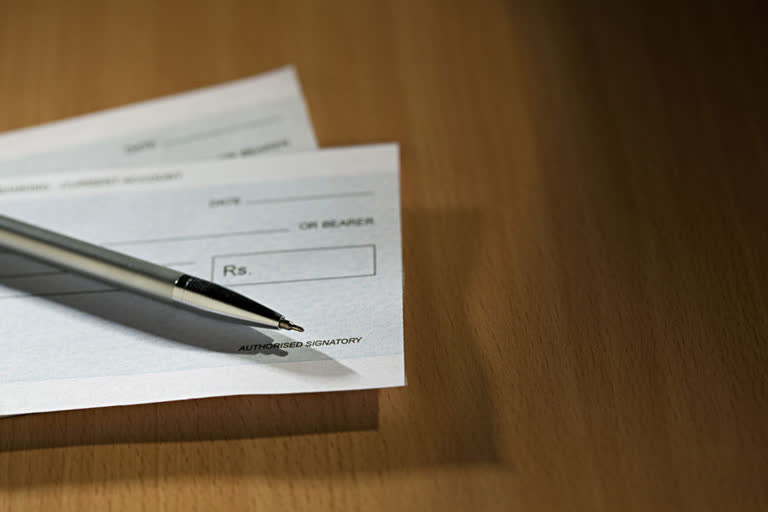Hyderabad: In a move that may change the system of issuing cheques in the country, the Reserve Bank of India (RBI) on Thursday announced that ‘Positive Pay’ mechanism will be introduced for cheques of value of Rs 50,000 and above.
The move, which aims to enhance the safety of cheque payments, would essentially change the clearing process of a high-value cheque. Operational guidelines in this regard are yet to be issued by RBI.
The development is significant as it will cover approximately 20% and 80% of total cheques by volume and value, respectively, circulating in the financial system.
What is Positive Pay and how does it work?
Under the Positive Pay System, banks match the details of cheques issued by a company/individual with the details of those that are presented for encashment by beneficiaries before clearing them.
So basically, a person writing the cheque shares the information of the issued cheque to the bank before transferring it to the beneficiary. This includes account number, amount, payee name, cheque number, cheque date, etc.
When the beneficiary deposits the cheque at the bank, the details are compared with the ones provided to the bank through the Positive Pay mechanism.
The cheque is honoured if the details match, while in case of a mismatch, the cheque is referred back to the issuer.
ICICI Bank Savings account has been providing the Positive Pay service to its account holders since 2016, wherein customers can share the details of issued cheque along with an image of the front and reverse side of the cheque on the bank’s iMobile application before handing it over to the beneficiary.
How can it help?
The Positive Pay mechanism can prove to be very effective in restricting cases of cheque frauds in India which involve counterfeit cheques (those created on non-bank paper to look genuine), forged cheques (a genuine cheque, but forged signature) or fraudulently altered cheques (a genuine cheque by a genuine customer, but amount or recipient’s name altered before it has been paid).
Read more:RBI adds glitter to gold, allows higher loans against jewellery
For instance, in a major scam unearthed in Kochi last year, unidentified fraudsters siphoned off more than Rs 2.6 crore using cloned cheques in just five transactions from the Punjab National Bank, Central Bank of India, Union Bank of India and Canara Bank. Positive Pay mechanism could have easily caught this fraud.
K. Srinivasa Rao, Professor at Institute of Insurance and Risk Management (IIRM), Hyderabad, said: “Positive Pay in cheque payment is an interesting feature. An issuer of cheque of Rs 50,000 and above will have to inform his bank that he has issued the cheque. If implemented, it will be a fool-proof system.”
What are the challenges?
The biggest drawback of the Positive Pay mechanism is the fact that high-value cheques will not be cleared without prior intimation. Highlighting the same, Rao said: “Corporates and traders issue plenty of cheques on a day-to-day basis may find it difficult to inform about each cheque.”
A CFO of a large listed company, on condition of anonymity, confirmed the fears while acknowledging the advantages. “Currently, in case of large-value cheques, cross-verification is still done with issuers on a random basis. This system provides adequate security. However, any fraudulent change in the cheques subsequently (in terms of amount or cheque number) or forged signature can still not be tracked. In that sense, Positive Pay may help.”
However, he added that implementing it will be extremely challenging since large business houses issue thousands of cheques daily, with most of them valuing more than Rs 50,000.
“Timely submission of these cheque details to banks, and then banks updating the same in their system quickly may not be practical… particularly when cheques now a days can be presented anywhere in India and go for clearance within a day or two,” he said.
“The implementation of the mechanism will pose more challenges particularly in rural and small-town branches, and also with traders and small manufacturers who are not very IT-savvy,” he added. “This idea of RBI is perhaps to discourage usage of cheques and encourage more and more digital payments.”
Srinivasa Rao added that, at present, there is no law in India which imposes this condition on a customer that he/she has to inform banks at the time of issuing a cheque. “Detailed guidelines are awaited. The present government can bring a new law through an ordinance to put this into effect,” he said.
(ETV Bharat Report)



